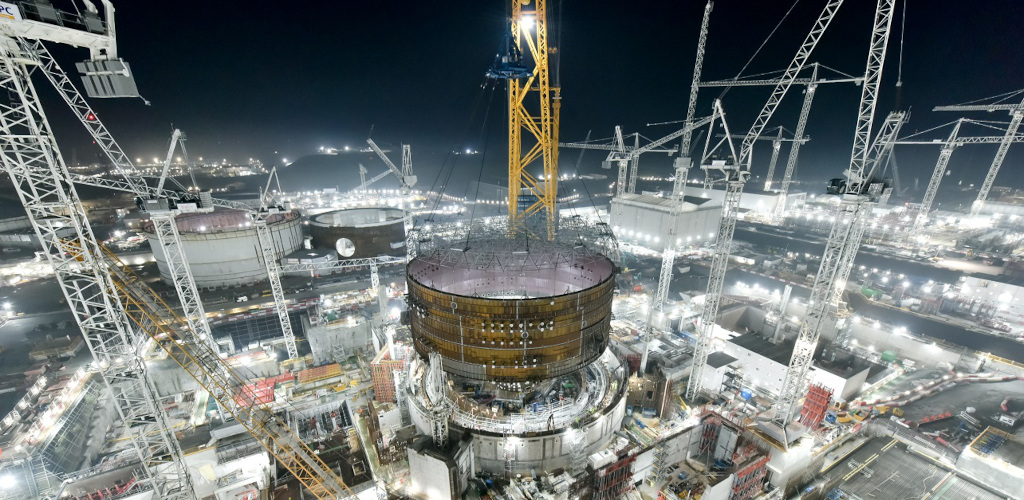Mar 21 | 2022
Firm Deployed ‘Big Carl’ Crane To Lift 382-Tonne Liner Ring

Sarens has called into action the world’s largest crane, the SGC-250, or “Big Carl”, to carry out some demanding lifts at the UK’s Hinkley Point C nuclear power plant.
The Belgium-based heavy-lift specialist, alongside contractors Tissot, Bylor and NNB, used its 250-metre-high crane and SarSpin hydraulic cylinder system to place two steel liner rings on top of a pair of reactor buildings at the project site in Somerset, southwest England.
The first, 382-tonne prefabricated liner ring was lifted onto Nuclear Unit 2 in November 2021.
The SGC-250 was initially deployed to raise the roof of a bunker unit in which the liner ring had been assembled. The crane was then outfitted with the remote-controlled SarSpin device and attached to Tissot’s 74T novum beam, a tubular steel structure designed to connect SarSpin with the liner ring’s multiple lifting points.
The crane moved the SarSpin and the suspended novum beam over the bunker to pick up the liner ring and hoist it into position. The load weighing a combined 579 tonnes was lifted at a distance of 133.5 metres.
“Despite on-site congestion and weather challenges, the operation proceeded smoothly, safely, and securely. The team was able to coordinate with the numerous other tower cranes in the area to provide a clear space for the lift and to avoid potential collisions,” Sarens said.
“Additionally, the crew carefully monitored weather forecasts to execute the bunker roof and liner ring lifting operations when wind speeds were lower than 8 metres per second, and tackle connection and pickup to when wind speeds were lower than 14 metres per second.”
A second, 347-tonne steel ring was installed on Nuclear Unit 1 in March 2022.
Sarens crew and equipment have been at the Hinkley Point C site for several years. The SGC-250, which has a maximum lifting capacity of 5,000 tonnes, is expected to carry out some 700 lifts during the construction phase of the project.
The 3,200-MW Hinkley Point C, developed by EDF Energy, a unit of French state-controlled energy firm EDF, is one of Europe’s biggest civil engineering projects, with a price tag of about £23 billion.
The plant, with its two European pressurized reactors, is slated to start up in 2026, and once online will supply zero-carbon electricity to some 6 million homes.
